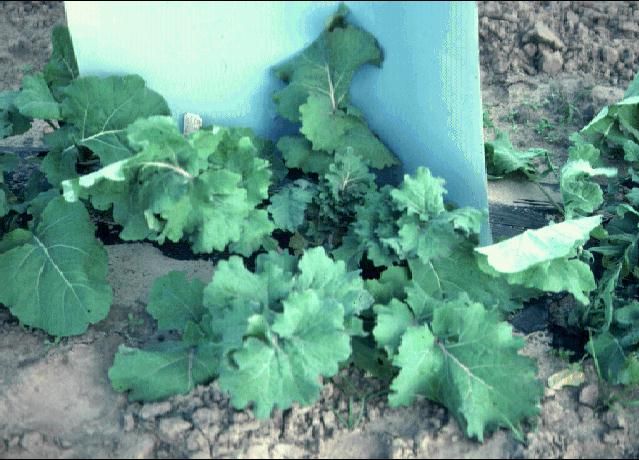Hanover Salad—Brassica napus L. (Pabularia group)1
Hanover salad has other common names such as Hanover kale, spring kale, Siberian kale, and Hanover turnip. It is a member of the mustard family (Cruciferae).

Credit: James M. Stephens
Description
Hanover salad varieties and strains vary considerably in appearance. The plant might best be described as resembling the ordinary collard and rape, although the leaves are much more curly. They are not as curly as kale, however. The leaves form a rosette and are usually smooth like the collard rather than hairy like the turnip. The stems vary from purple to white. Although it is sometimes compared in growth to turnip, it does not form a fleshy root.
Use
The leaves are used both as a cooking green (potherb) and in salads. Young tender leaves are best for both purposes. For storage, first wash the leaves and then place in the refrigerator crisper in plastic bags.
Culture
Hanover salad is a cool weather crop grown in Florida during fall, winter, and early spring. When planted the first of September in Gainesville, the few plants in the demonstration trial grew vigorously well into the winter. Plant statewide from September through March.
Hanover salad can be grown like collards. Plants may be started directly in the garden from seeds, or by setting transplants. Space rows 24–30 inches apart, and plants 10–18 inches apart. When direct seeding, broadcast the seed very shallowly (¼–½ inch deep) in a wide-band method. Thin and use the young tender plants until the proper spacing is obtained.
Hanover salad is susceptible to cabbage loopers and other caterpillars that chew holes in the leaves. However, in a fall trial at Gainesville, it was relatively free of insect pest damage.


